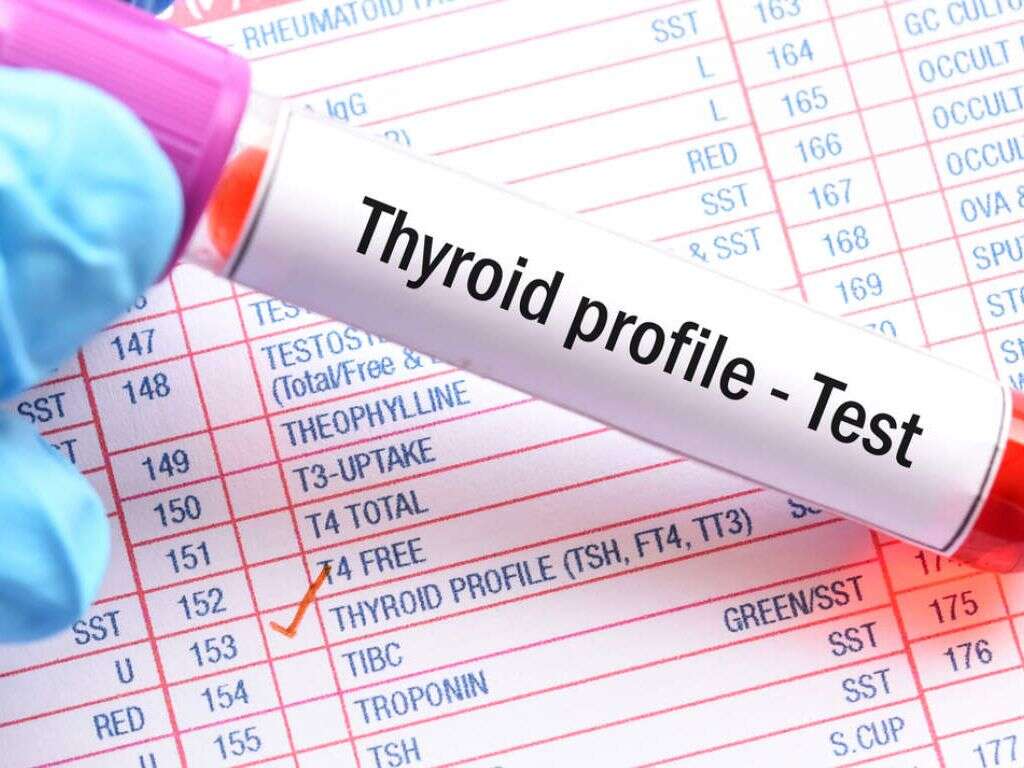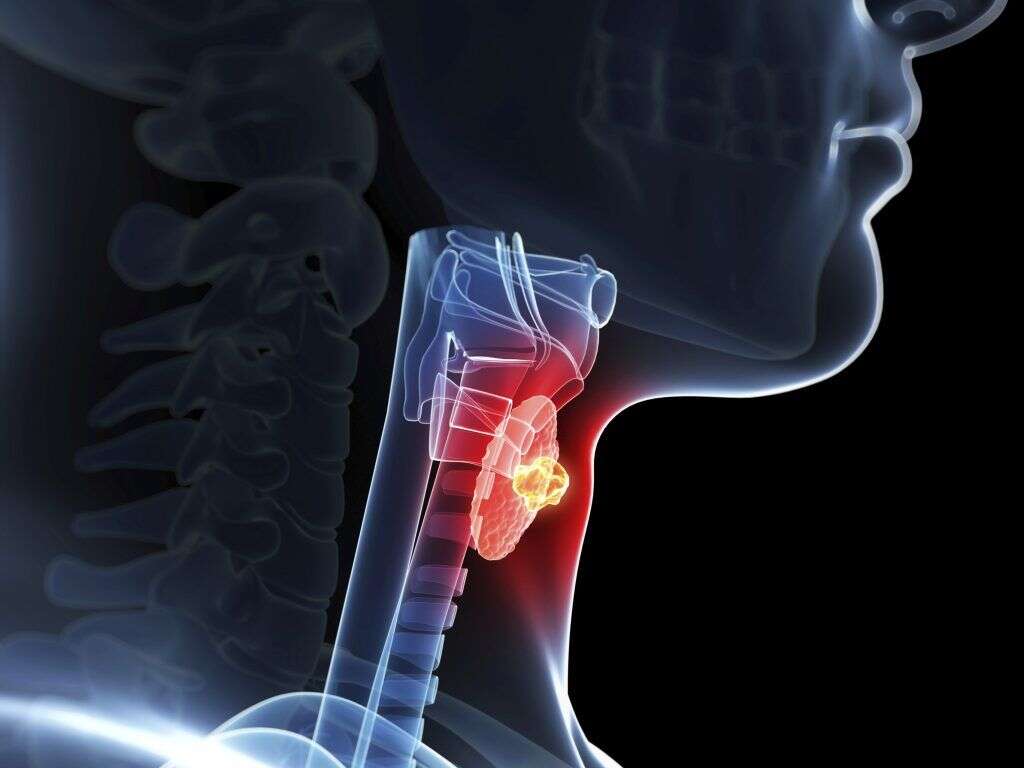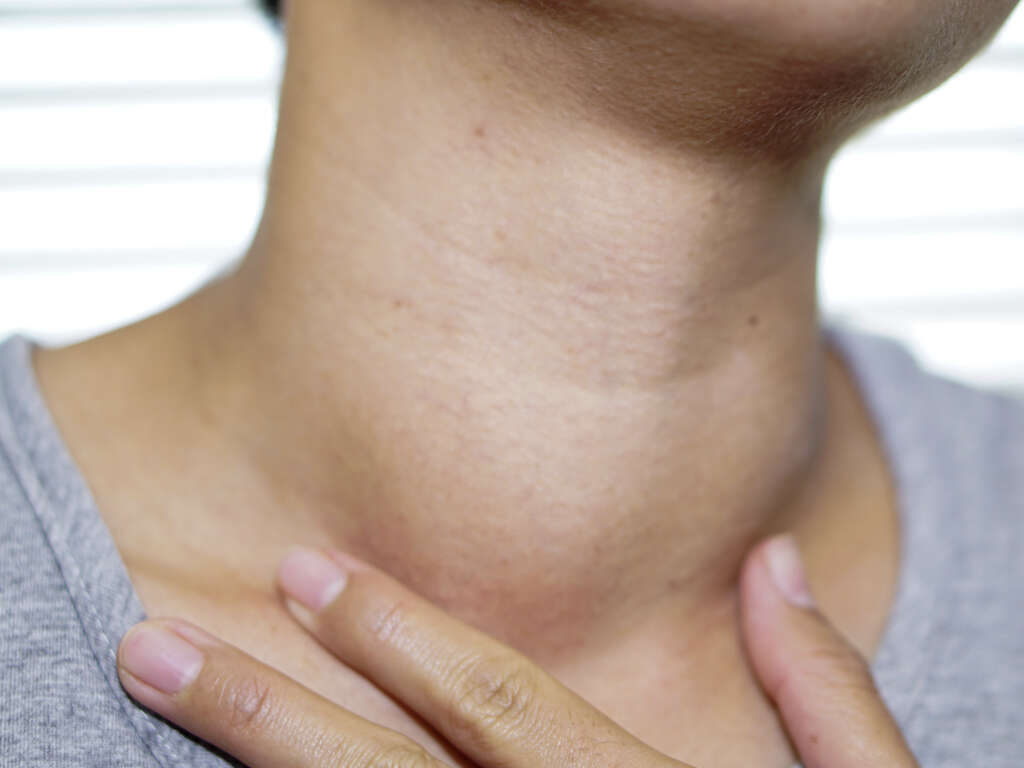Hypothyroidism Diet Foods to Eat, Foods to Avoid
 Article Sources
Article Sources
- 1. 'Hypothyroidism (Underactive Thyroid).' Mayo Clinic, Mayo Foundation for Medical Education and Research, 19 Nov. 2020, www.mayoclinic.org/diseases-conditions/hypothyroidism/symptoms-causes/syc-20350284.
- 2. 'Hypothyroidism.' American Thyroid Association, www.thyroid.org/hypothyroidism/.
- 3. 'Can Certain Foods Increase Thyroid Function in People with Hypothyroidism?' Mayo Clinic, Mayo Foundation for Medical Education and Research, 4 Sept. 2019, www.mayoclinic.org/diseases-conditions/hypothyroidism/expert-answers/hypothyroidism-diet/faq-20058554.
- 4. 'Hypothyroidism: A Booklet for Patients and Their Families.' American Thyroid Association, 2019, www.thyroid.org/wp-content/uploads/patients/brochures/Hypothyroidism/web/booklet.pdf.
- 5. NHS Choices, NHS, www.nhs.uk/conditions/underactive-thyroid-hypothyroidism/treatment/.
- 6. 'Thyroid and Diet Factsheet.' British Thyroid Foundation, www.btf-thyroid.org/thyroid-and-diet-factsheet.
- 7. 'Levothyroxine: MedlinePlus Drug Information.' MedlinePlus, U.S. National Library of Medicine, medlineplus.gov/druginfo/meds/a682461.html.
- 8. Team, Chronic Conditions. 'Foods and Supplements You Should Avoid With Thyroid Issues.' Health Essentials from Cleveland Clinic, Health Essentials from Cleveland Clinic, 5 Oct. 2020, health.clevelandclinic.org/thyroid-issues-what-you-need-to-know-about-diet-and-supplements/.
- 9. 'Straight Talk About Soy.' The Nutrition Source, 3 Mar. 2021, www.hsph.harvard.edu/nutritionsource/soy/.
- 10. 'Iron-Rich Foods and Anemia.' Cleveland Clinic, my.clevelandclinic.org/health/diseases/14621-iron-rich-foods-and-anemia.
- 11. Vol 11 Issue 12 P.3- American Thyroid Association, www.thyroid.org/patient-thyroid-information/ct-for-patients/december-2018/vol-11-issue-12-p-3-4/.1
- 12. 'Cruciferous Vegetables and Cancer Prevention.' National Cancer Institute, www.cancer.gov/about-cancer/causes-prevention/risk/diet/cruciferous-vegetables-fact-sheet.
- 13. 'Mayo Clinic Q and A: Hypothyroidism, Spinach and Kale.' Mayo Clinic, Mayo Foundation for Medical Education and Research, newsnetwork.mayoclinic.org/discussion/mayo-clinic-q-and-a-hypothyroidism-spinach-and-kale/.
- 14. Ventura, Mara, et al. 'Selenium and Thyroid Disease: From Pathophysiology to Treatment.' International Journal of Endocrinology, Hindawi Publishing Corporation, 2017, www.ncbi.nlm.nih.gov/pmc/articles/PMC5307254/.
- 15. 'How to Add More Fiber to Your Diet.' Mayo Clinic, Mayo Foundation for Medical Education and Research, 6 Jan. 2021, www.mayoclinic.org/fiber/art-20043983/in-depth/art-20043983.
Hypothyroidism occurs when the thyroid gland doesn't produce enough thyroid hormones to maintain proper body function. This causes symptoms that range from fatigue, forgetfulness and depression to constipation, dry skin, weight gain and hair loss.1‘Hypothyroidism (Underactive Thyroid).’ Mayo Clinic, Mayo Foundation for Medical Education and Research, 19 Nov. 2020, www.mayoclinic.org/diseases-conditions/hypothyroidism/symptoms-causes/syc-20350284. With the right treatment, most people can control the condition by taking synthetic thyroid hormone medication and improving their lifestyle.2‘Hypothyroidism.’ American Thyroid Association, www.thyroid.org/hypothyroidism/.
A healthy diet is very important for the function of your thyroid. Some foods and supplements impact thyroid hormone production. Others interfere with absorption of thyroid hormone replacement medications, so people with hypothyroidism should remain aware of the foods they eat and when they eat them.3‘Can Certain Foods Increase Thyroid Function in People with Hypothyroidism?’ Mayo Clinic, Mayo Foundation for Medical Education and Research, 4 Sept. 2019, www.mayoclinic.org/diseases-conditions/hypothyroidism/expert-answers/hypothyroidism-diet/faq-20058554.

1. Synthetic Thyroid Hormone Replacement Medication
Doctors usually prescribe a synthetic thyroid replacement medication, called thyroxine, for those with hypothyroidism. Thyroxine is available generically or as branded medications, such as Synthroid and Levoxyl. Taking thyroxine as directed eases symptoms of hypothyroidism. Doctors advise taking levothyroxine at the same time each day.4‘Hypothyroidism: A Booklet for Patients and Their Families.’ American Thyroid Association, 2019, www.thyroid.org/wp-content/uploads/patients/brochures/Hypothyroidism/web/booklet.pdf.
It's best for people to take thyroxine first thing in the morning and on an empty stomach. Drinking a full glass of water after swallowing the medication helps keep the pill from getting stuck in the throat. For best results, people should avoid eating for 30 to 60 minutes after taking thyroxine.5NHS Choices, NHS, www.nhs.uk/conditions/underactive-thyroid-hypothyroidism/treatment/.

2. Calcium-Rich Foods
Calcium can prevent the proper absorption of thyroxine in the body. People with hypothyroidism should wait at least four hours after taking thyroxine before they consume calcium supplements or foods that contain calcium, such as milk, yogurt and ice cream. This reduces the possibility of blood thyroxine levels being impacted.6‘Thyroid and Diet Factsheet.’ British Thyroid Foundation, www.btf-thyroid.org/thyroid-and-diet-factsheet.
Certain over-the-counter antacid remedies, such as Tums, contain calcium carbonate. So for those with hypothyroidism, the four-hour rule applies to these antacids as well.7‘Levothyroxine: MedlinePlus Drug Information.’ MedlinePlus, U.S. National Library of Medicine, medlineplus.gov/druginfo/meds/a682461.html.

3. Foods Containing Iodine and Kelp
Under normal circumstances, the thyroid gland requires iodine to produce thyroxine. In the United States, iodine is present in many foods. People with hypothyroidism who take synthetic thyroid replacement medication should only use iodine supplements, like kelp, under medical supervision, because they can interfere with the benefits of their medication.
Occasionally consuming foods containing kelp isn't harmful.6‘Thyroid and Diet Factsheet.’ British Thyroid Foundation, www.btf-thyroid.org/thyroid-and-diet-factsheet.,8Team, Chronic Conditions. ‘Foods and Supplements You Should Avoid With Thyroid Issues.’ Health Essentials from Cleveland Clinic, Health Essentials from Cleveland Clinic, 5 Oct. 2020, health.clevelandclinic.org/thyroid-issues-what-you-need-to-know-about-diet-and-supplements/. Note that table salt has added iodine to avoid a deficiency in this nutrient. Himalayan salt contains very little amounts of iodine in its natural form.
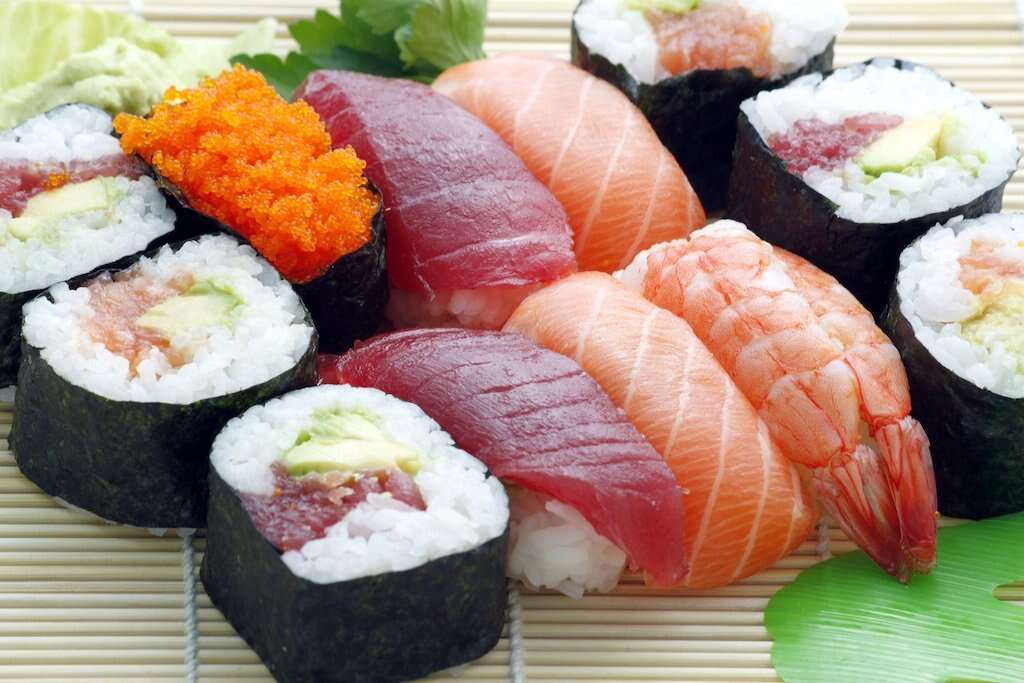
4. Soy-Based Foods
Nutritionally, soy is a complete protein. It's a good source of fiber, B vitamins, potassium and magnesium.9‘Straight Talk About Soy.’ The Nutrition Source, 3 Mar. 2021, www.hsph.harvard.edu/nutritionsource/soy/.
Unfortunately, it's another food that can affect the absorption of thyroxine, so people with hypothyroidism should allow four hours between taking thyroxine and eating foods containing soy. Since some baby formulas are soy-based, parents whose babies have hypothyroidism may need to choose a soy-free formula or time feedings to avoid counteracting thyroxine's benefits.4‘Hypothyroidism: A Booklet for Patients and Their Families.’ American Thyroid Association, 2019, www.thyroid.org/wp-content/uploads/patients/brochures/Hypothyroidism/web/booklet.pdf.
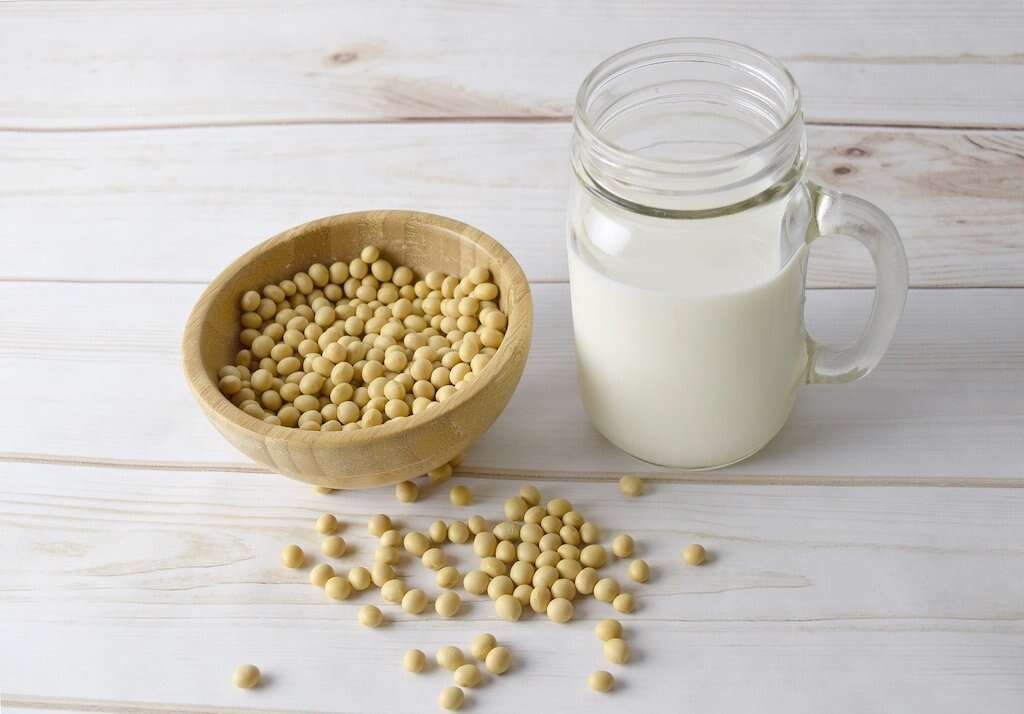
5. Iron-Rich Foods
Iron is a mineral the body needs to produce hemoglobin, which carries oxygen through the blood to various parts of the body. Foods that are rich in iron include liver, eggs, molasses and spinach.10‘Iron-Rich Foods and Anemia.’ Cleveland Clinic, my.clevelandclinic.org/health/diseases/14621-iron-rich-foods-and-anemia.
However, iron is yet another nutrient that can interfere with the body's absorption of synthetic thyroid replacement medication. To prevent this problem, people with hypothyroidism should not eat iron-rich foods or take iron supplements four hours before or after taking thyroxine.7‘Levothyroxine: MedlinePlus Drug Information.’ MedlinePlus, U.S. National Library of Medicine, medlineplus.gov/druginfo/meds/a682461.html.

6. Biotin Supplements
A water-soluble B vitamin, biotin is a nutrient that occurs naturally in a well-balanced diet. It's also available in supplement form, marketed to improve the health of hair, skin and nails.
Studies have indicated that biotin can interfere with the accurate measurement of thyroid hormone levels during blood tests. For this reason, people should not take biotin for at least two days before having blood drawn for thyroid-testing purposes.11Vol 11 Issue 12 P.3- American Thyroid Association, www.thyroid.org/patient-thyroid-information/ct-for-patients/december-2018/vol-11-issue-12-p-3-4/.1
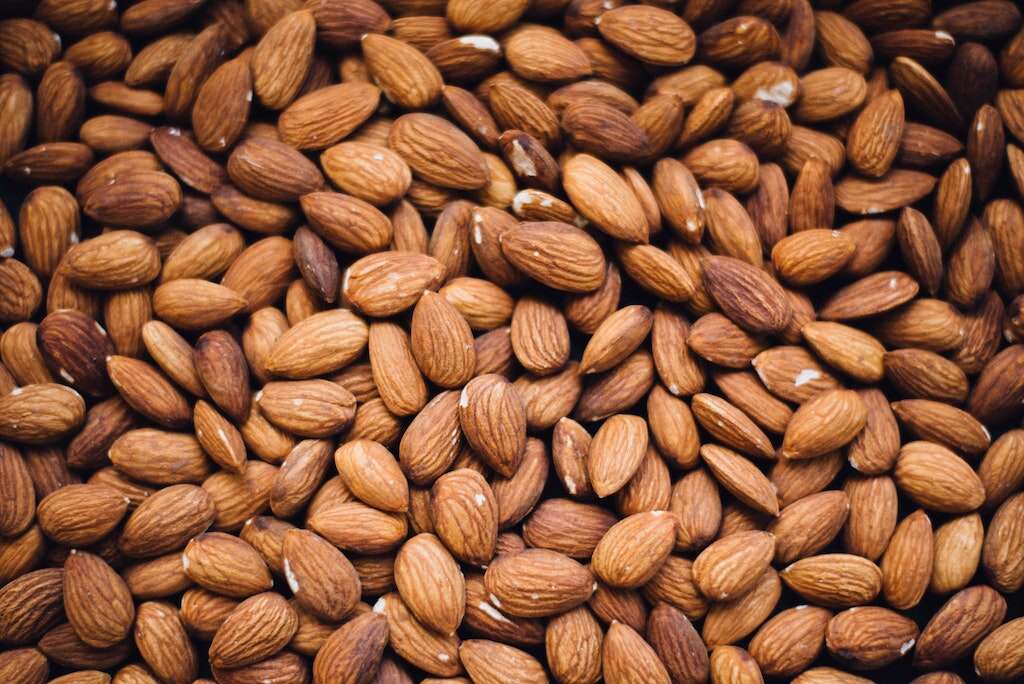
7. Cruciferous Vegetables
Cabbage, brussels sprouts, kale and cauliflower are examples of cruciferous vegetables. They're good sources of fiber, as well as vitamins C, E and K.12‘Cruciferous Vegetables and Cancer Prevention.’ National Cancer Institute, www.cancer.gov/about-cancer/causes-prevention/risk/diet/cruciferous-vegetables-fact-sheet.
Cruciferous vegetables can inhibit the thyroid gland's ability to absorb iodine, so people with borderline iodine levels need to limit their consumption of these vegetables. It is better to cook them, rather than eat them raw.8Team, Chronic Conditions. ‘Foods and Supplements You Should Avoid With Thyroid Issues.’ Health Essentials from Cleveland Clinic, Health Essentials from Cleveland Clinic, 5 Oct. 2020, health.clevelandclinic.org/thyroid-issues-what-you-need-to-know-about-diet-and-supplements/. Those with hypothyroidism who take synthetic thyroid replacement medication as directed can eat normal quantities of cruciferous vegetables without suffering negative effects.13‘Mayo Clinic Q and A: Hypothyroidism, Spinach and Kale.’ Mayo Clinic, Mayo Foundation for Medical Education and Research, newsnetwork.mayoclinic.org/discussion/mayo-clinic-q-and-a-hypothyroidism-spinach-and-kale/.

8. Root Vegetables
It has been suggested that turnips and other root vegetables may interfere with thyroid function, but they are actually safe for people with hypothyroidism to include in their diets.
Cassava is a root vegetable routinely consumed in parts of Africa. When cooked and consumed in large quantities, it can reduce iodine absorption in the body. However, eating cassava in reasonable quantities on an occasional basis is not going to be a problem.8Team, Chronic Conditions. ‘Foods and Supplements You Should Avoid With Thyroid Issues.’ Health Essentials from Cleveland Clinic, Health Essentials from Cleveland Clinic, 5 Oct. 2020, health.clevelandclinic.org/thyroid-issues-what-you-need-to-know-about-diet-and-supplements/.

9. Selenium-Rich Foods
Selenium is a nutrient necessary for efficient thyroid function. It's found in poultry, meat, fish and Brazil nuts.8Team, Chronic Conditions. ‘Foods and Supplements You Should Avoid With Thyroid Issues.’ Health Essentials from Cleveland Clinic, Health Essentials from Cleveland Clinic, 5 Oct. 2020, health.clevelandclinic.org/thyroid-issues-what-you-need-to-know-about-diet-and-supplements/.
Evidence indicates that taking selenium supplements may be useful to some people with hypothyroidism if they have insufficient selenium intakes. It's best to obtain the nutrient through a balanced diet, but selenium supplementation of up to 200 micrograms per day may be helpful in some cases. Further study is needed, and those with hypothyroidism should check with their doctors before taking selenium supplements.8Team, Chronic Conditions. ‘Foods and Supplements You Should Avoid With Thyroid Issues.’ Health Essentials from Cleveland Clinic, Health Essentials from Cleveland Clinic, 5 Oct. 2020, health.clevelandclinic.org/thyroid-issues-what-you-need-to-know-about-diet-and-supplements/.,14Ventura, Mara, et al. ‘Selenium and Thyroid Disease: From Pathophysiology to Treatment.’ International Journal of Endocrinology, Hindawi Publishing Corporation, 2017, www.ncbi.nlm.nih.gov/pmc/articles/PMC5307254/.

10. Fiber-Rich Foods
Dietary fiber, present in whole grains, fruits, vegetables and legumes, offers many health benefits. It helps decrease constipation, lowers the risk of cancer, and aids in controlling weight, blood sugar levels and cholesterol levels.15‘How to Add More Fiber to Your Diet.’ Mayo Clinic, Mayo Foundation for Medical Education and Research, 6 Jan. 2021, www.mayoclinic.org/fiber/art-20043983/in-depth/art-20043983. But too much fiber can interfere with the absorption of thyroid hormone replacement medication, so those with hypothyroidism need to regulate fiber intake.
The key to successful management of hypothyroidism is to eat a sensible, well-balanced diet and take synthetic thyroid replacement medication as directed by a physician.3‘Can Certain Foods Increase Thyroid Function in People with Hypothyroidism?’ Mayo Clinic, Mayo Foundation for Medical Education and Research, 4 Sept. 2019, www.mayoclinic.org/diseases-conditions/hypothyroidism/expert-answers/hypothyroidism-diet/faq-20058554.




